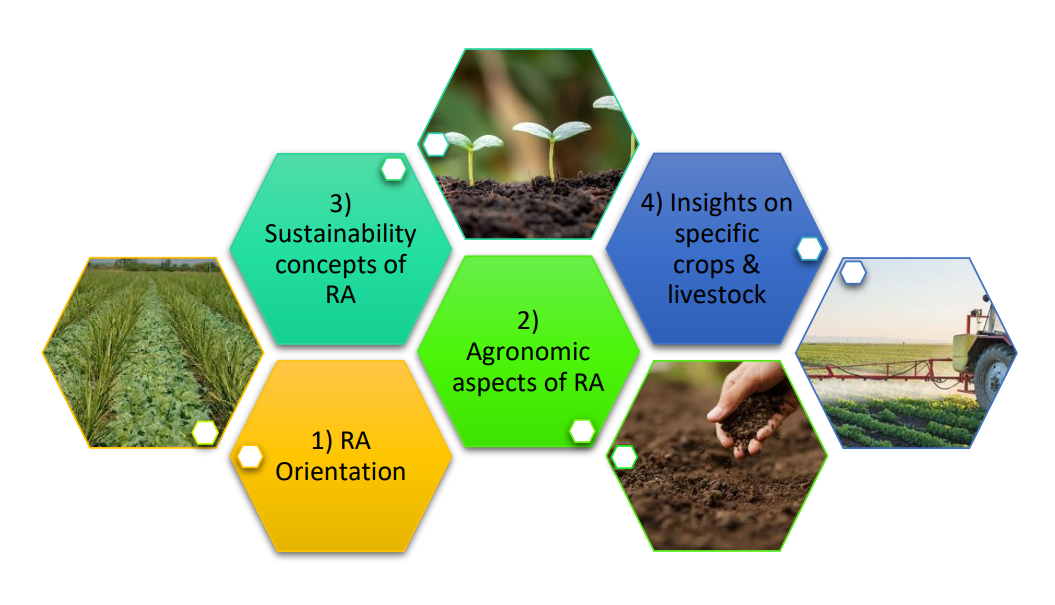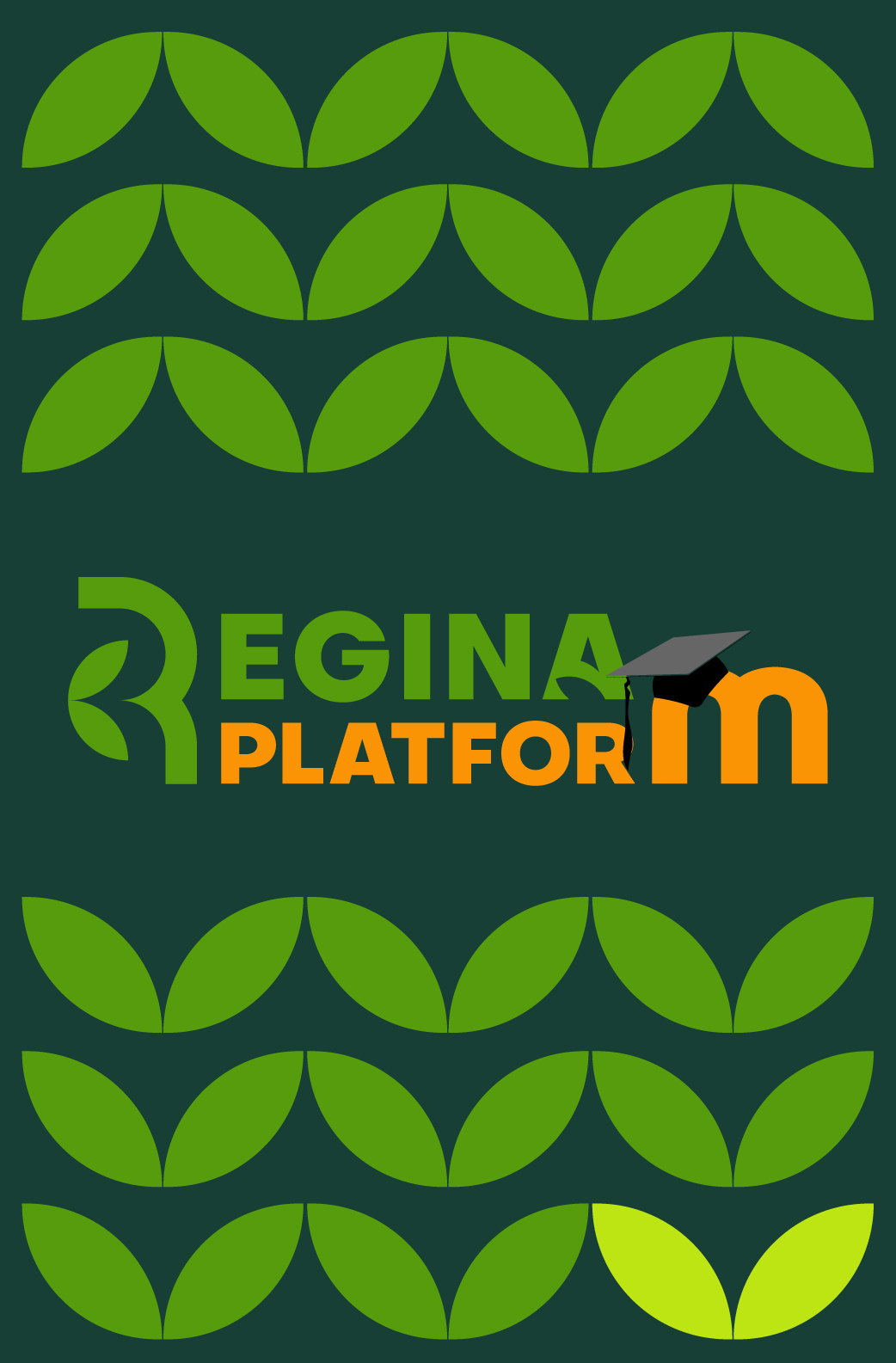Learning methodology
The objective of this PR was to design a learning methodology and appropriate innovative learning tools to introduce an interdisciplinary course of study on Regenerative Agriculture for university students of agriculture, addressing major issues of our time focused on global climate change, soil health and enhanced ecosystem services, as well as food and water security, exploiting knowledge that exists in the partnership on conservation agriculture, soil metagenomics, bioinformatics, environmental engineering and sustainable rural development. The methodology addresses higher education teachers, with an adaptation possibility for secondary vocational education teachers/trainers, and teachers/trainers, mentors and advisors of adult education addressing farmers.
The methodology is flexible, so that although serving primarily the interests of university education, it is adapted to secondary vocational education needs; and non-formal adult learning needs, addressing farmers.
The course addresses critical contemporary issues such as climate change, soil health, ecosystem services, and food and water security. The methodology is also designed to benefit higher education teachers, vocational education instructors, and adult education advisors, particularly those working with farmers. Key principles include:
- Incorporating multidisciplinary content by involving multiple universities and departments to cover the breadth of RA knowledge;
- combining theory with practical examples collected in a Good Practice Library;
- promoting direct interaction and peer-to-peer learning involving agricultural stakeholders;
- creating a flexible course delivery model suitable for higher education, vocational education, and non-formal adult learning, adaptable for both in-person and online settings;
- defining the structure and content of a model course for various educational levels;
- utilizing learning resources such as a Good Practice Library, content from other project components, and an interactive online platform linked to the project's website and social media.

The REGINA course is structured around 4 main modules, each focusing on a specific aspect of regenerative agriculture (Module 1: Regenerative Agriculture Orientation, Module 2: Agronomic aspects, Module 3: Sustainability concepts, Module 4: Insights on specific crops & livestock). Furthermore, a Horizontal Module has also been introduced, devoted to the field activities of the course. A detailed description on the main modules can also be found in the Learning Methodology of REGINA.
Furthermore, the project offers an online interactive platform (the REGINA platform), which allows the interaction between teachers, students and other users – especially farmers, encouraging exchange of experiences and peer learning; while accommodating all the resources of the Learning Modules.
You can read more and have access to the REGINA Platform here: Check REGINA Platform
The methodology and tools are expected to impact the resurgence of interest in RA among the academic and vocational education communities; help HE students to develop a closer understanding of the farmers’ perspective, thus enhancing their career prospects as future farmers’ advisors; provide useful open learning resources for all three tiers of learning, including adult learning among farmers; and consolidate a network of stakeholders in the implementing countries who may promote RA as a valuable component of sustainable rural development. In addition, the interdisciplinary and transnational nature of the methodology makes it suitable for implementation in a variety of University departments (e.g. rural development, environmental engineering, water & environmental sciences, animal sciences etc), and in many different locations in the EU.
You can access here the REGINA Learning Methodology document:
REGINA Learning Methodology (English)
REGINA Learning Methodology (Hungarian)
REGINA Learning Methodology (Greek)
REGINA Learning Methodology (Italian)
REGINA Learning Methodology (Slovenian)

The REGINA project (No. 2021-1-HU01-KA220-HED-000027629) was funded by the European Commission. The content of this website does not necessarily reflect the views of the European Commission.
Call 2021, KA220 – Cooperation Partnerships in Higher Education
The European Commission’s support for the production of the publications does not constitute an endorsement of the contents, which reflect the views only of the authors, and the Commission cannot be held responsible for any use which may be made of the information contained therein.

